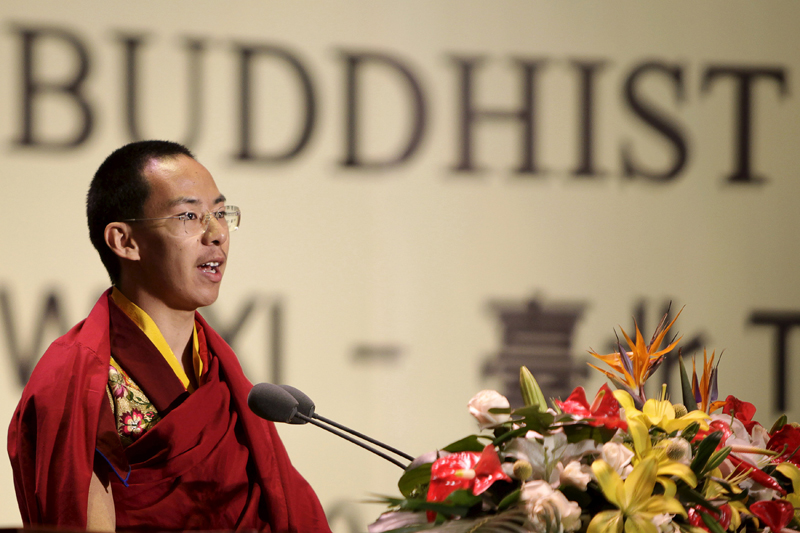China's Tibet party boss urges senior monk to shun Dalai Lama
BEIJING: China's Communist Party boss in Tibet has urged the Panchen Lama, the second-highest figure in Tibetan Buddhism, to reject the Himalayan region's exiled spiritual leader, the Dalai Lama, state media said on Tuesday.
Controversy surrounds the position of the Panchen Lama since the boy the Dalai Lama named as the reincarnation of the leader disappeared when he was six years old.
The fate of the missing Panchen Lama, one of China's most zealously guarded state secrets, is just one area of contention between China and the Dalai Lama over Tibet, and continues to worry many Tibetans.
Tibetan Buddhism holds that the soul of a senior lama is reincarnated in the body of a child on his death.
The Dalai Lama and China's officially atheist Communist Party have repeatedly tussled over who has final authority on the issue of reincarnation.
China's Communist Party has long maintained that the Dalai Lama's choice, Gendun Choekyi Nyima, now 26, is not the real Panchen Lama, and in 1995, the government selected Gyaltsen Norbu as the 11th Panchen Lama.
Chen Quanguo, the party secretary of Tibet, said he hoped Beijing's Panchen Lama would "unswervingly walk with the party" and safeguard national unity, the official Tibet Daily said.
"Resolutely draw a clear line between the 14th Dalai Lama and firmly reject all subversive separatist activities," Chen told the Panchen Lama in the Tibetan city of Shigatse during a meeting on Monday marking 20 years since the monk's investiture.
"Tibetan Buddhism is at its best period of development in history and religious circles and believers enjoy full religious freedom," the paper quoted Beijing's Panchen Lama as telling Chen.
The 80-year-old Dalai Lama fled to India after a failed uprising against Chinese rule in 1959. Beijing says he is a violent separatist but the monk denies espousing violence and says he only wants genuine autonomy for Tibet.
The Chinese government sees the appointment of the next Dalai Lama as key to consolidating state control over Tibet, where separatist movements have flared since the 1950s.
A senior Chinese official said in September that the Panchen Lama appointed by the Dalai Lama was "being educated, growing up healthily and does not want to be disturbed".
Tibetans fear Beijing will use the issue of the Nobel peace laureate's eventual death and succession to split Tibetan Buddhism, with one new Dalai Lama named by exiles and one by the government.
Beijing insists it must approve the next Dalai Lama, though the title's current holder has said it could end when he dies.






